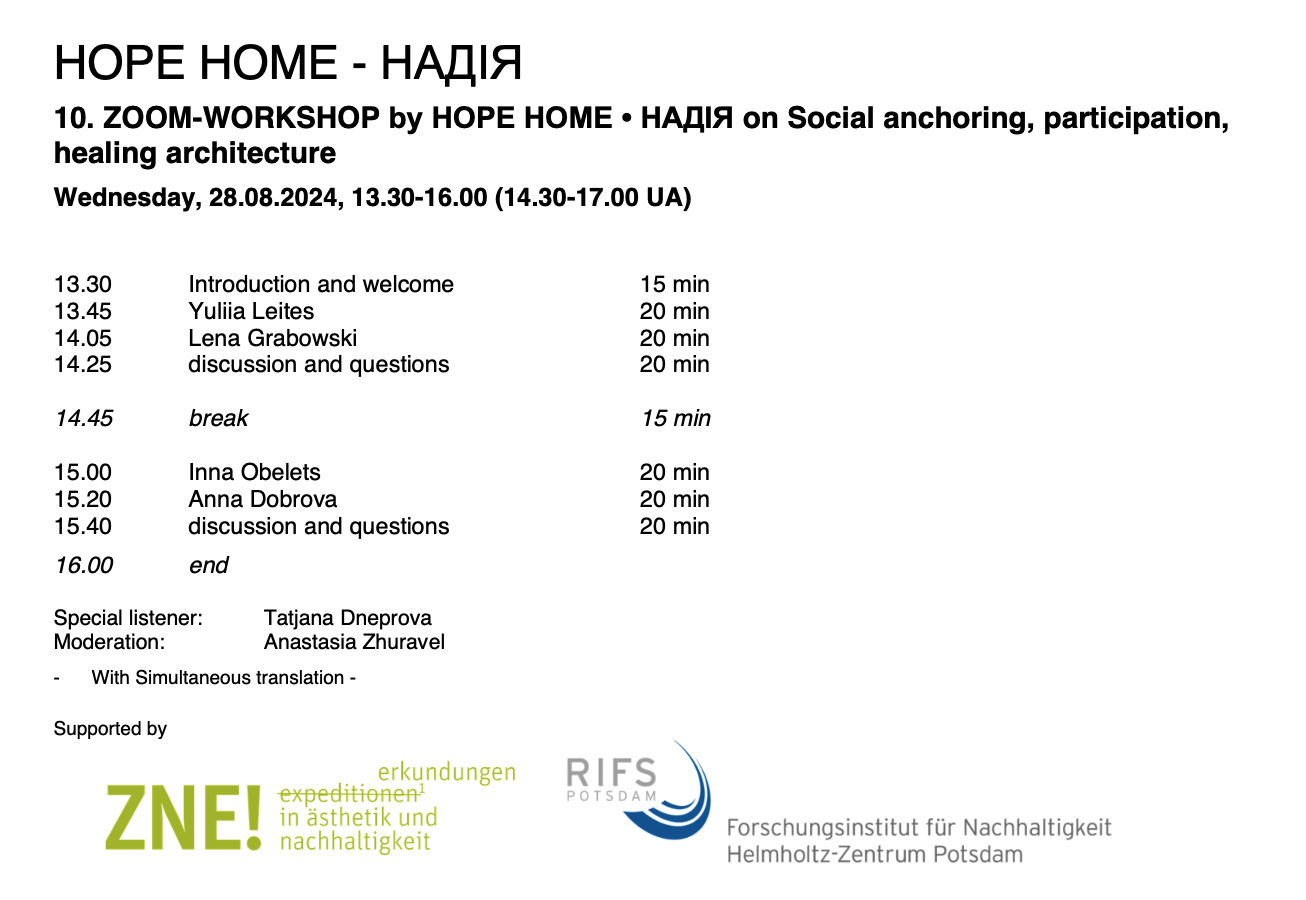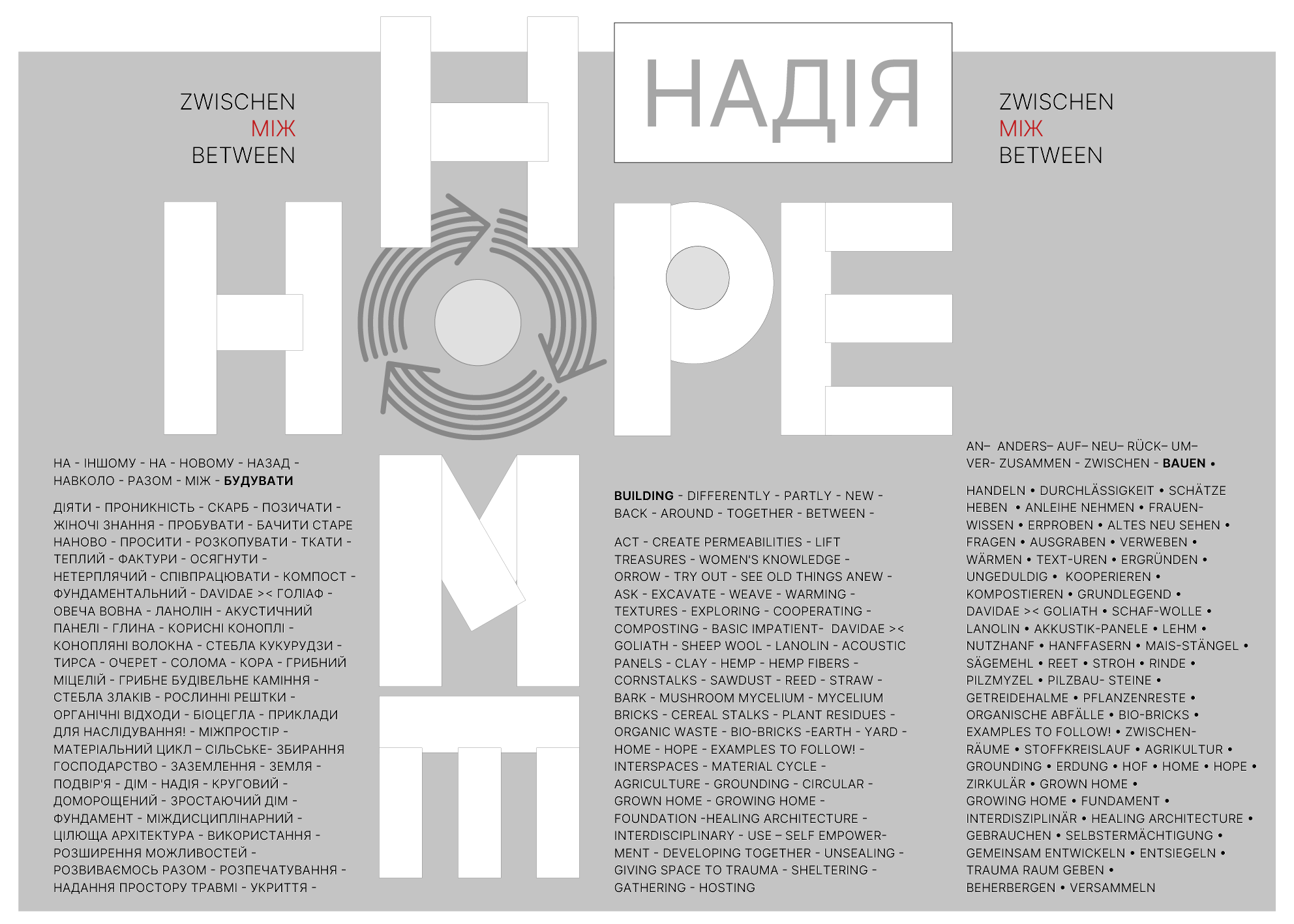Social Anchoring, participation,
healing architecture
This workshop focuses on the concepts of social anchoring, community participation, and healing architecture to foster inclusive and therapeutic environments..
Speaker:
- Lena Grabowski | Psychotraumatologist, collaboration with Save the Children, trauma-sensitive support for refugee children and families lenagrabowski.de
- Inna Obelets | UA and Rostock, Psychotraumatologist, working with refugees on experience of migration, violence, war, torture
- Anna Dobrova | Co-founder of NGO METALAB, coordinator of its affordable housing program CO-HATY, www.cohaty.org/en, metalab.space
- Yuliia Leites | a psychoanalytic psychotherapist from Kyiv, a member of the Ukrainian Psychedelics Research Organization
Special listener: Tatjana Dneprova
Moderation: Anastasia Zhuravel
Simultaneous translation

